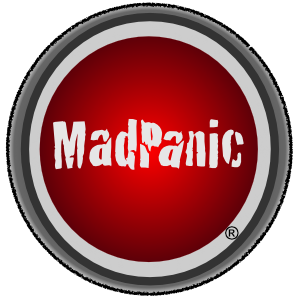Davinci Resolve - Is it the Future of Editing?
I have used many different packages over the years for editing and post production activities, from Sony Vegas (PC only), Final Cut Studio 7 (Mac only), Premiere Pro (PC & Mac), and FCPX (Mac only). Each of these has it's strengths and also has companion packages for doing the specialist features or tasks in the post production work cycle. What these have in common is that you need to roundtrip the project between the various separate components that make up a post production suite. It's a real pain, and I mean, a real pain. Davinci Resolve is cross platform, PC, Mac & Linux and is growing in functionality. Is Davinci Resolve the future? I think it really could be.
For example, in the Apple FCS solution, there is FCP7 for editing, Apple Color for grading, Motion for VFX, and Soundtrack Pro for sound editing (and also Logic Pro for music production and more in-depth sound design). The Adobe creative suite also has a bunch of companion packages such as, Premiere Pro for editing, After Effects for VFX, Audition for sound editing, and SpeedGrade for colour grading. The latest FCPX does keep most of it's workflow within the FCPX editing package, but for VFX you still need to go external to Motion and for sound, you really need something like Logic Pro.
Even though, both the Adobe suite and the Apple FCP offerings have colour grading (and the old Apple color program is top notch), Davinci Resolve from BlackMagic Designs just wins hands down with extremely professional high quality colour grading tools. The colour grading also has animated masks it's a node based workflow, you can save grades, it's intuitive and accurate, and the list goes on. If only it had editing capabilities …. well it does. Not only that, it of course, has the colour grading tools, which I actually think are probably the best I've ever seen. Although the Adobe suite works across PC & Mac it does not work on Linux, unlike Davinci Resolve. For me, the biggest issue with the Adobe suite is their switch to a subscription only model. Blackmagic have turned things on their head. Davinci Resolve comes in two basic flavours, Free, and Paid, a one off license cost for just a couple of hundred pounds. The free version has immense functionality that will suite a huge amount of the market, but remember, developers need to eat and they are the ones creating awesomeness, so purchase a copy of Davinci Resolve Studio, you won't regret it.
The approach of Davinci Resolve is to progress your workflow though a series of stages, such as Ingesting / media management, editing, colour grading and delivery which each have their own page within the interface. The ingesting or media management is very powerful allowing you to organise how you see fit, and assign markers and keywords before you even start editing. What's nice about the workflow is you can focus on the task in hand, say editing a sequence, then if you want to get some feel with colour grading, click the colour page and grade a few clips, then watch it as a graded form without having to roundtrip anywhere. This is really important. When working with ungraded footage, sometimes it's hard to really get into the mood of what you're creating or if you want to show the director how things are progressing it's nice to show something that is nearer to a finished picture so that there are less distractions.
Davinci Resolve also comes with a separate visual effects package, Fusion, but as of writing, I have not used it. It is a node based compositing tool which reminds me of the days when I used Discreet Combustion, so a very interesting space. Everytime I fire up Davinci Resolve, I like it even more. The release schedule is pretty impressive too. When BlackMagic create a release, it is packed full of features. Also looking at the Blackmagic camera line up and their general approach, I have good a good feeling about this company and if things go the way I think they are, they will absolutely storm the market.
As I said earlier, Adobe has gone down the subscription model, which I really am not a fan of. Apple are Apple, you just don't know where you stand with them and what their priorities are or when they are going to retire a product literally overnight (FCP7, Aperture, Shake to name just a few). They now seem to want to make products that are geared more towards the consumer and not the professional market. Blackmagic on the other hand is a breath of fresh air, bringing out products that challenge the market and are well built. From an IT perspective, I really like the way Davinci Resolve is architected, it's solid and well thought out. I have used Davinci Resolve mainly as a colour grading tool and everytime I use it, I wonder why I'm round tripping from other NLE's and not using Davinci Resolve for my editing workflow. This is something I will be seriously evaluating over the coming months.
blog comments powered by Disqus
